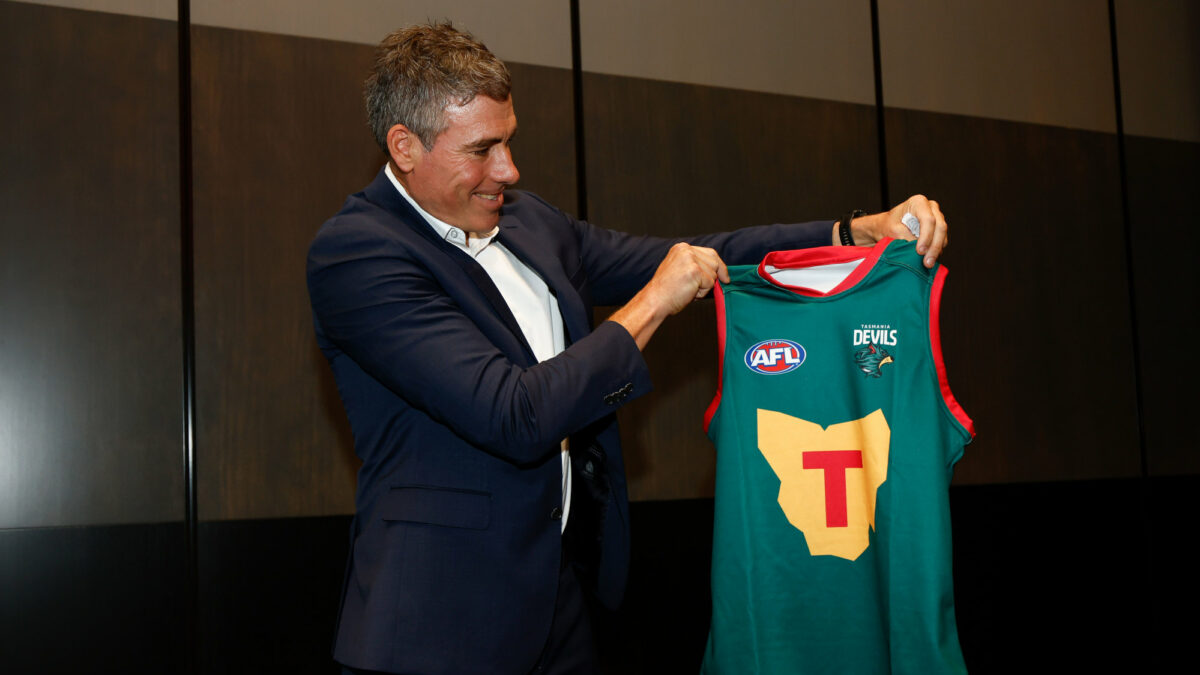Significant delays and controversies surrounding the construction of the proposed Macquarie Point stadium have put the Tasmania Devils’ 2028 AFL entry in jeopardy.
The AFL has made the new stadium a non-negotiable requirement for Tasmania to join the league. The dream of a Tasmanian team might not come true if swift and decisive action is not taken to start construction.
The AFL has stated unequivocally that Tasmania’s admission to the league depends on the building of a 23,000-seat roofed stadium at Macquarie Point.
“It’s really clear the conditional licence is a 23,000-seat roofed stadium at Macquarie Point,” AFL CEO Andrew Dillon underlined.
This clause demonstrates the AFL’s dedication to making sure new teams have the facilities they need to compete at the highest level.
The stadium project has been beset by delays and rising expenses, despite the initial excitement. Independent estimates have raised the initial $775 million estimate to over $1 billion. Concerns regarding the project’s feasibility and the possible financial strain on Tasmanian taxpayers have been raised by these overruns.
Furthermore, the Tasmanian Government’s decision to abandon plans for private funding in favour of a government-funded approach has raised alarms about increasing state debt.
The Macquarie Point Development Corporation, a state-owned entity, is now responsible for borrowing funds and selling land to cover the financial shortfall, a move that critics argue effectively constitutes public debt.
The stadium project has turned into a divisive political topic.
The Tasmania Devils AFL team will not exist unless the state parliament enacts special legislation to allow for the stadium’s construction, according to an ultimatum issued by Premier Jeremy Rockliff.
Opposition members and independents have resisted this hardline approach, accusing the government of lacking transparency and breaching election pledges.
There is also disagreement among the public. Some consider the stadium to be a potential “white elephant” project that could burden the state with long-term debt, while others see it as a symbol of Tasmania’s sporting aspirations and a driver of economic growth.
Given the current delays and the intricate planning process, meeting the AFL’s conditional licence requirements – which call for the stadium to be half-built by October 2027 and ready to host games in 2029 – will be difficult.
The Tasmanian Government intends to introduce special legislation to expedite the project, but its passage is uncertain because of the government’s minority status in parliament.
The timely completion of the Macquarie Point stadium is essential to the Tasmania Devils’ AFL dream. This ambitious project is in danger of failing due to delays, financial overruns, and political opposition.
Tasmania could lose out on a once-in-a-generation chance to join the AFL if swift and decisive action is not taken.
The building of the stadium must be given top priority by the state in order to guarantee that the Devils play in 2028, satisfying the dreams of Tasmanian football supporters and guaranteeing the cultural and economic advantages that come with having an AFL team.
It’s not whether Tasmania deserves a team – it’s whether Tasmania is willing to do what it takes to earn one. Will we build a future, or just keep talking about one?
The question remains: will the Devils ever roar?






